
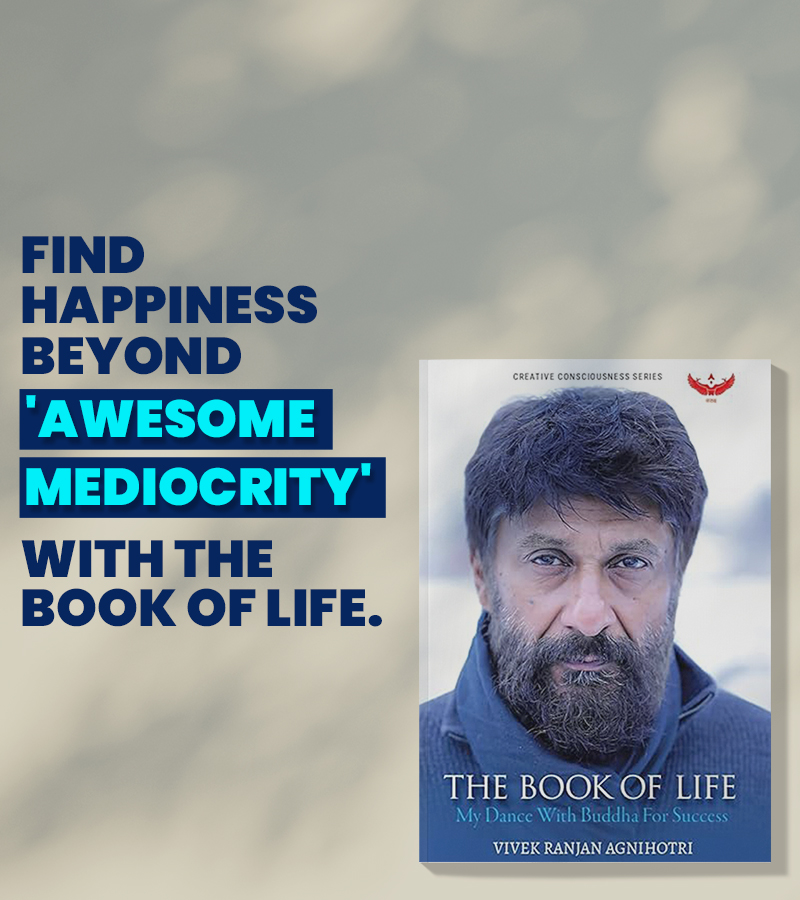
8 Ways to Define Success According to The Book of Life
Explore how The Book of Life redefines success through personal fulfillment, Dharma, and balanced living.
Success is a concept that often carries different meanings for different people. It is not a one-size-fits-all definition. For some, success might be climbing the corporate ladder and achieving financial stability. For others, it might be pursuing a passion, fostering meaningful relationships, or contributing to society significantly. In his book The Book of Life, Vivek Ranjan Agnihotri explores the various dimensions of success. He challenges the conventional wisdom that often equates success with wealth and status.
In The Book of Life, Vivek Agnihotri provides a nuanced understanding of success, emphasizing personal fulfillment, happiness, and the pursuit of one’s true calling. This blog will delve into eight ways The Book of Life helps readers redefine success, encouraging a more holistic and individualized approach.
What is Success?
Before diving into the eight ways, it’s essential to understand what success truly means. Success is often associated with external achievements such as financial prosperity, social status, and professional accomplishments. However, true success goes beyond these superficial measures. It encompasses personal fulfillment, inner peace, and living a life aligned with one’s values and passions. Vivek Ranjan Agnihotri’s insights in The Book of Life shed light on redefining success and including these more profound aspects.
1. Success as Personal Fulfillment
Living a life true to yourself, you experience a more profound sense of accomplishment and joy.
Vivek Agnihotri emphasizes that true success is deeply personal and subjective. It’s about personal fulfillment and happiness rather than societal benchmarks. He encourages readers to pursue their passions and align their actions with values for a more meaningful life.
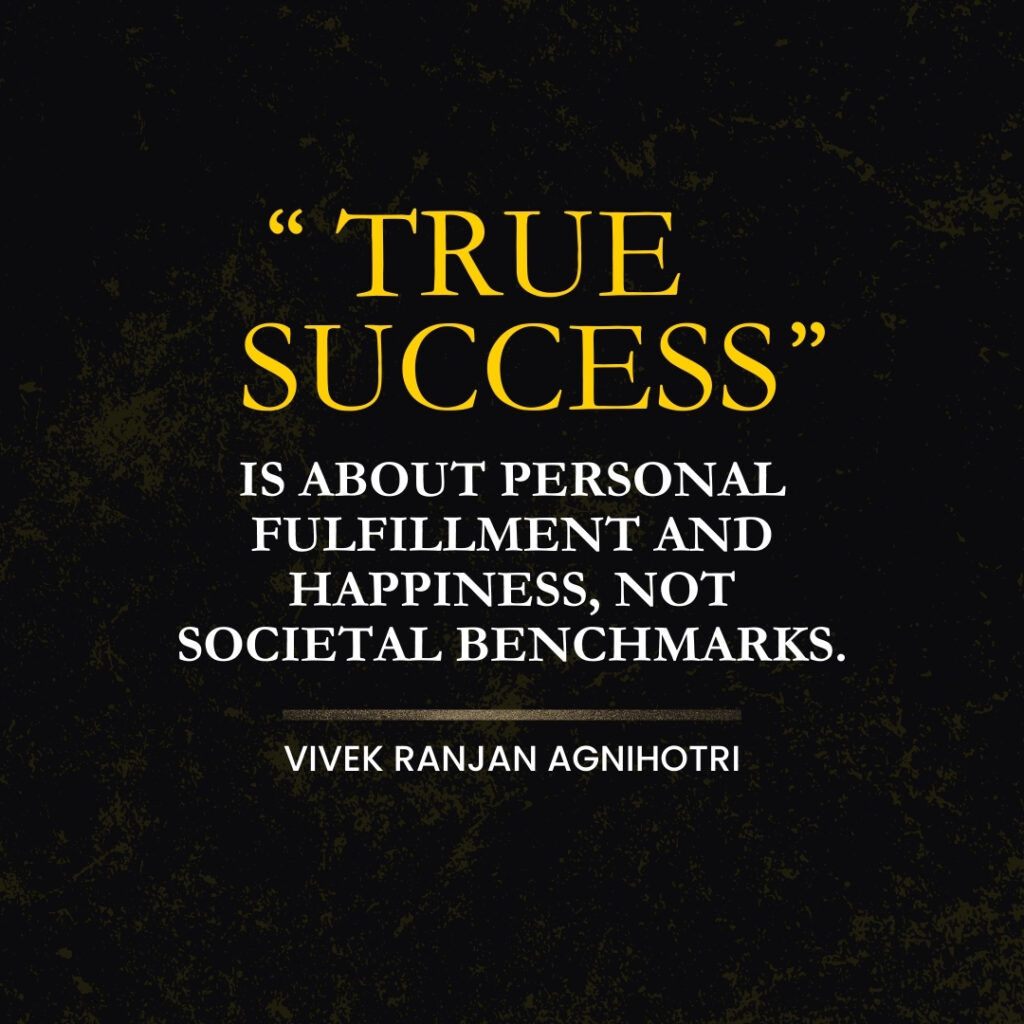
2. The Illusion of Material Success
Focusing on what truly matters leads to a richer life experience.
Vivek Ranjan Agnihotri critiques the conventional notion of success tied to wealth and social status. He highlights the transient nature of these achievements. He urges readers to seek more profound, more enduring sources of satisfaction beyond material gains. Material success can provide temporary happiness but not long-term fulfillment.
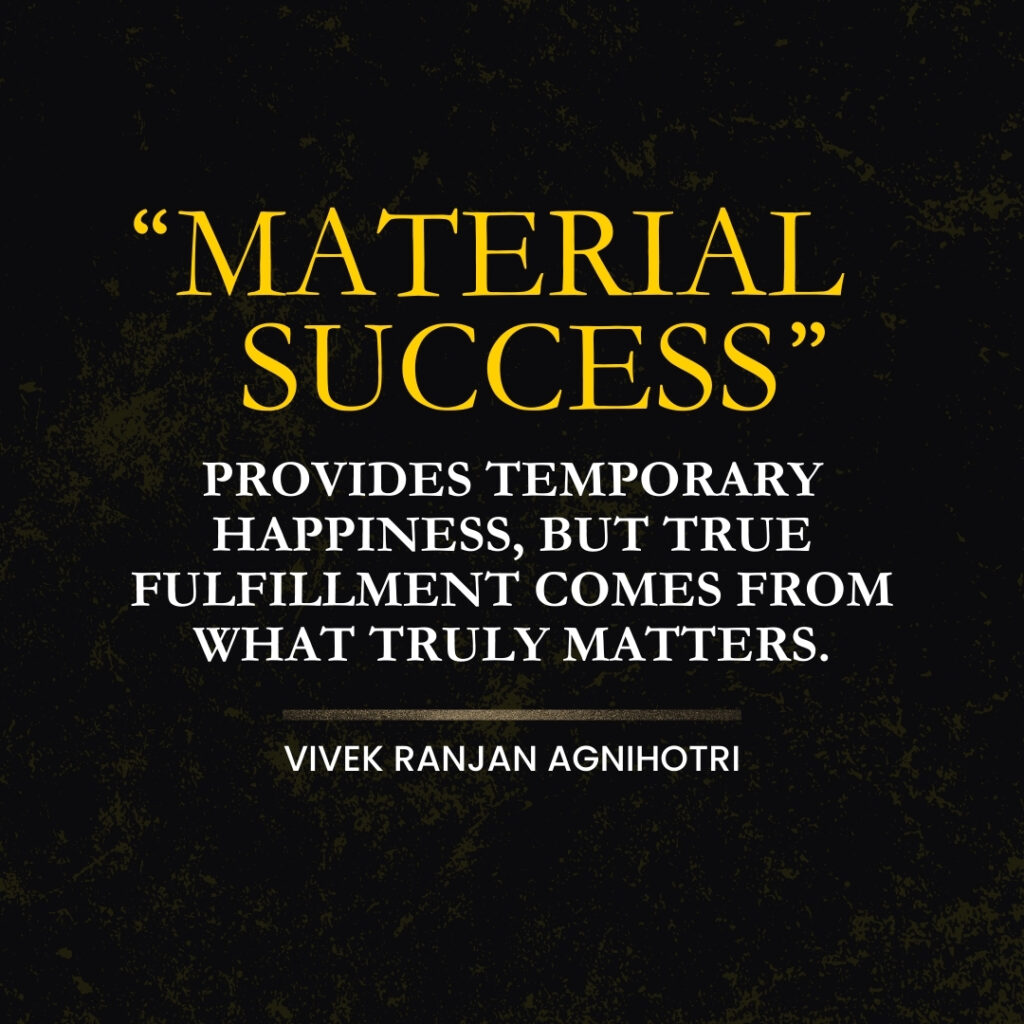
3. Success and Dharma
Acting according to one’s Dharma benefits the individual and contributes positively to society.
Central to Vivek Agnihotri’s philosophy is Dharma, or moral duty. True success is intertwined with fulfilling one’s Dharma, leading to a life of purpose and harmony. This perspective shifts the focus from external achievements to internal ethical alignment. Acting according to one’s Dharma benefits the individual and contributes positively to society.
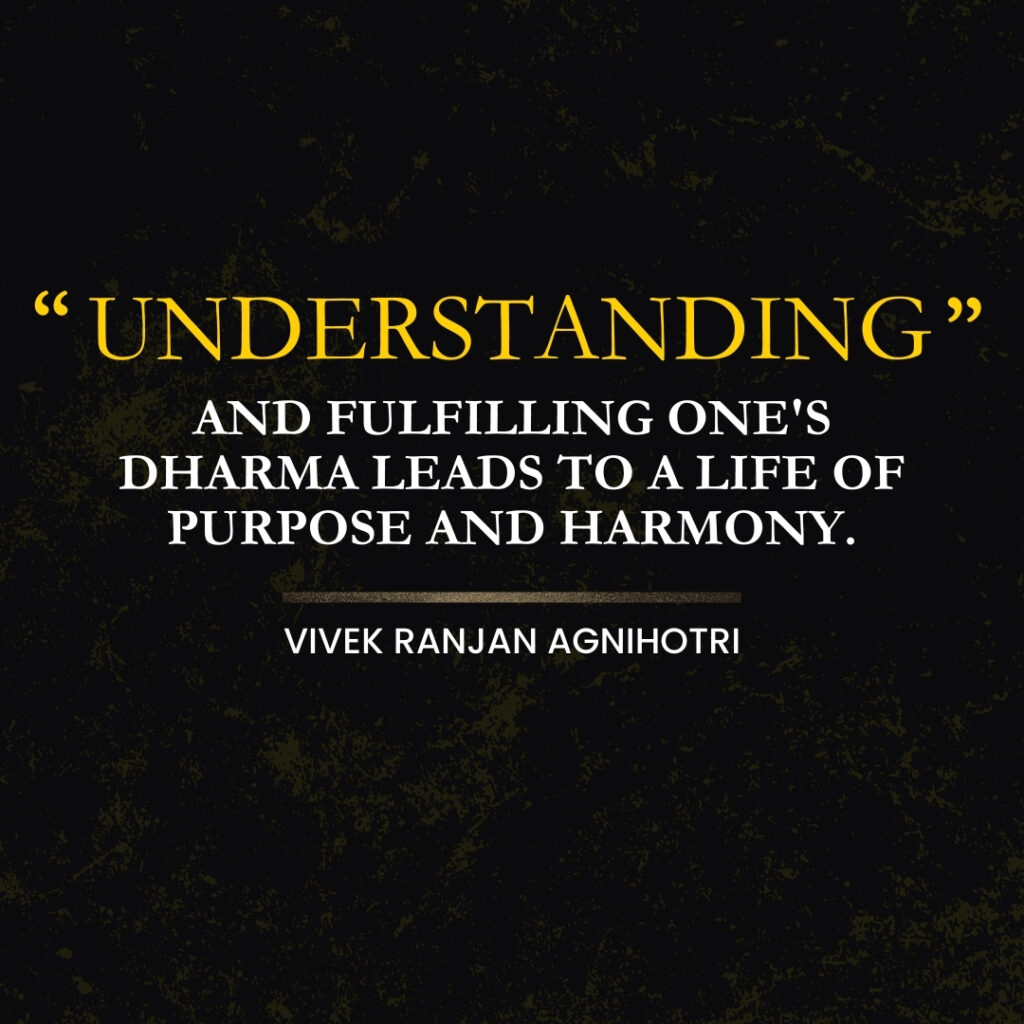
4. The Role of Self-Awareness
Self-awareness is a crucial component of success.
Understanding one’s strengths, weaknesses, desires, and fears enables individuals to set realistic goals and pursue paths that resonate with them, leading to authentic success. Vivek Agnihotri encourages readers to engage in introspection and self-reflection to better understand themselves and their purpose.
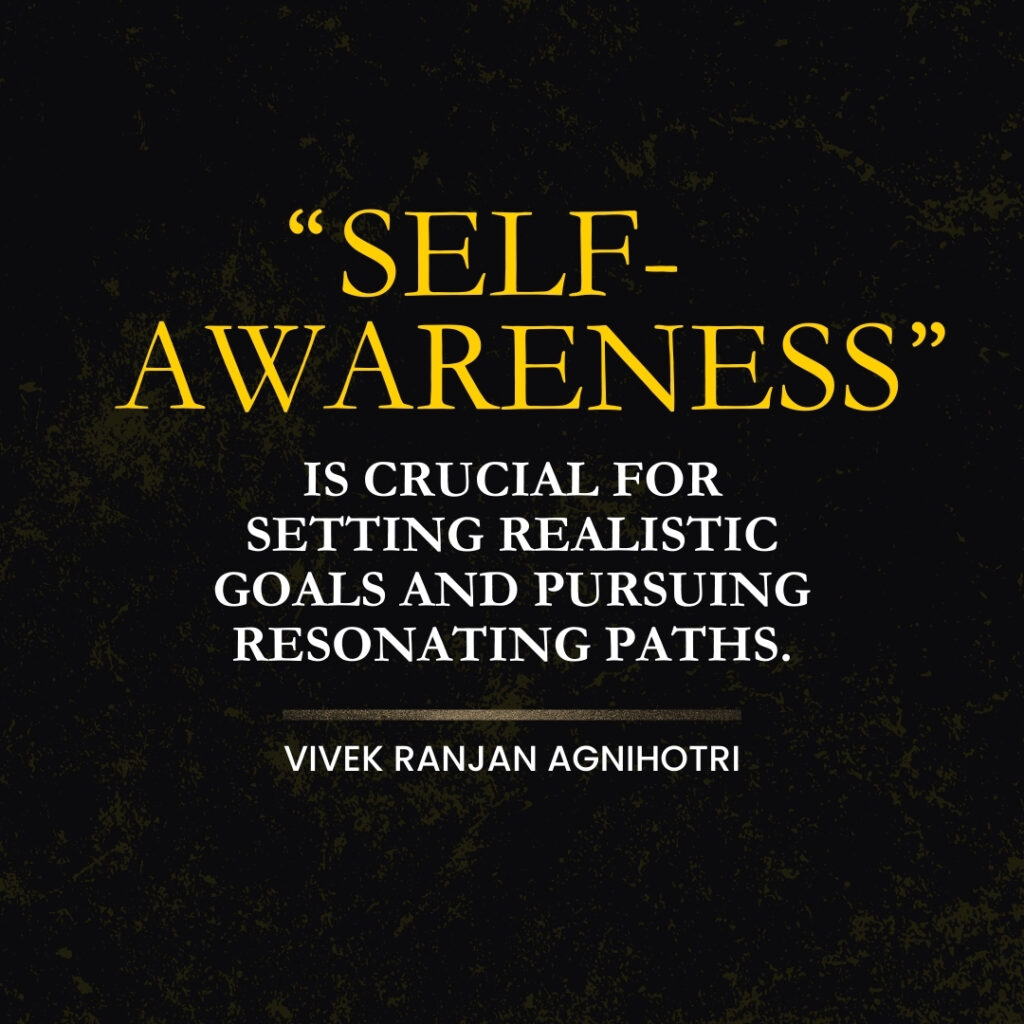
5. Overcoming Fear and Embracing Failure
Embracing failure can lead to more significant achievements and resilience.
Vivek Agnihotri discusses the importance of overcoming fear and viewing failure as part of the journey to success. He encourages readers to see failures as stepping stones, each providing essential lessons and opportunities for growth.

6. Success in Relationships
Investing time and effort in nurturing relationships can lead to a more balanced and satisfying life.
Vivek Ranajn Agnihotri explores the idea that success involves building meaningful relationships characterized by trust, respect, and mutual support. These connections enrich our lives and contribute significantly to our overall sense of fulfillment. Investing time and effort in nurturing relationships can lead to a more balanced and satisfying life.
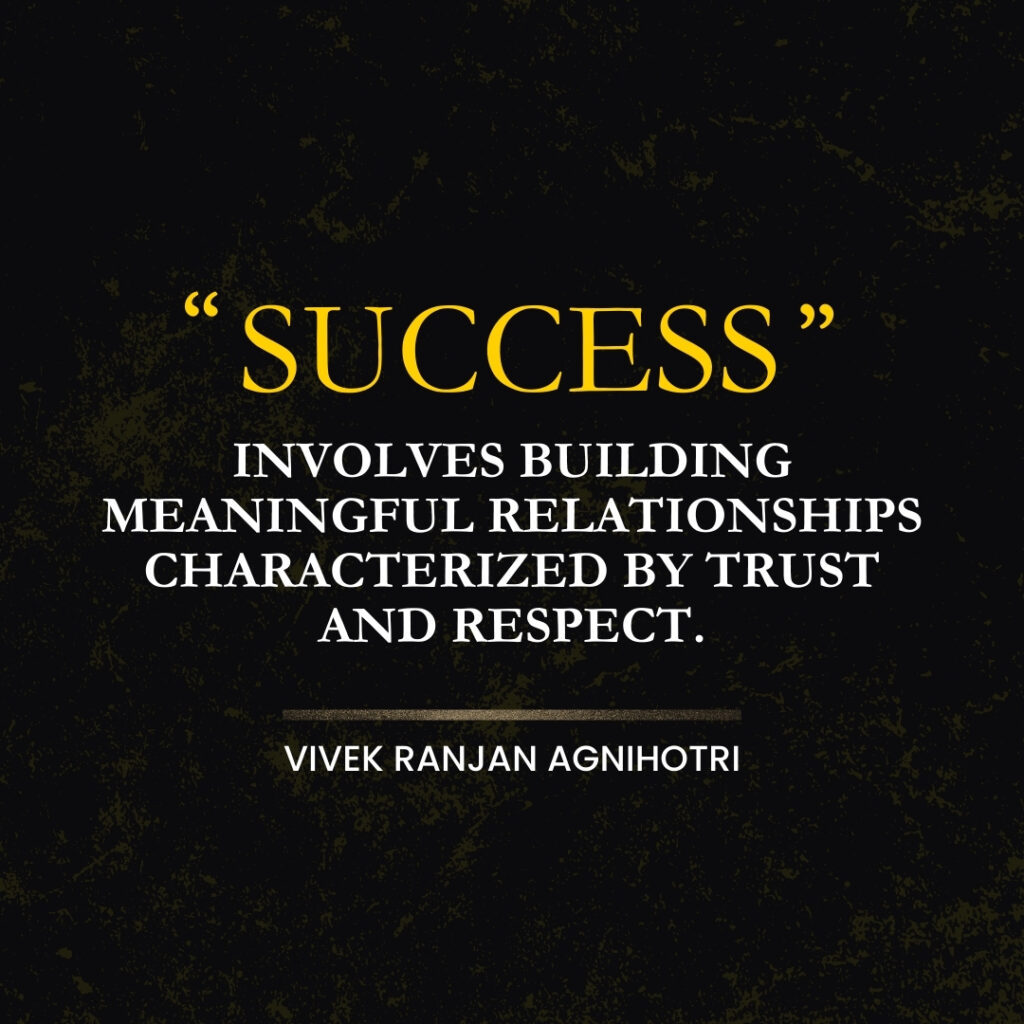
7. The Impact of Society and Culture
Breaking free from cultural and societal expectations can lead to a more authentic and fulfilling life.
Society and culture heavily influence our definitions of success. Vivek Agnihotri advocates for an individualized approach, encouraging people to define success on their own terms rather than conforming to societal standards.
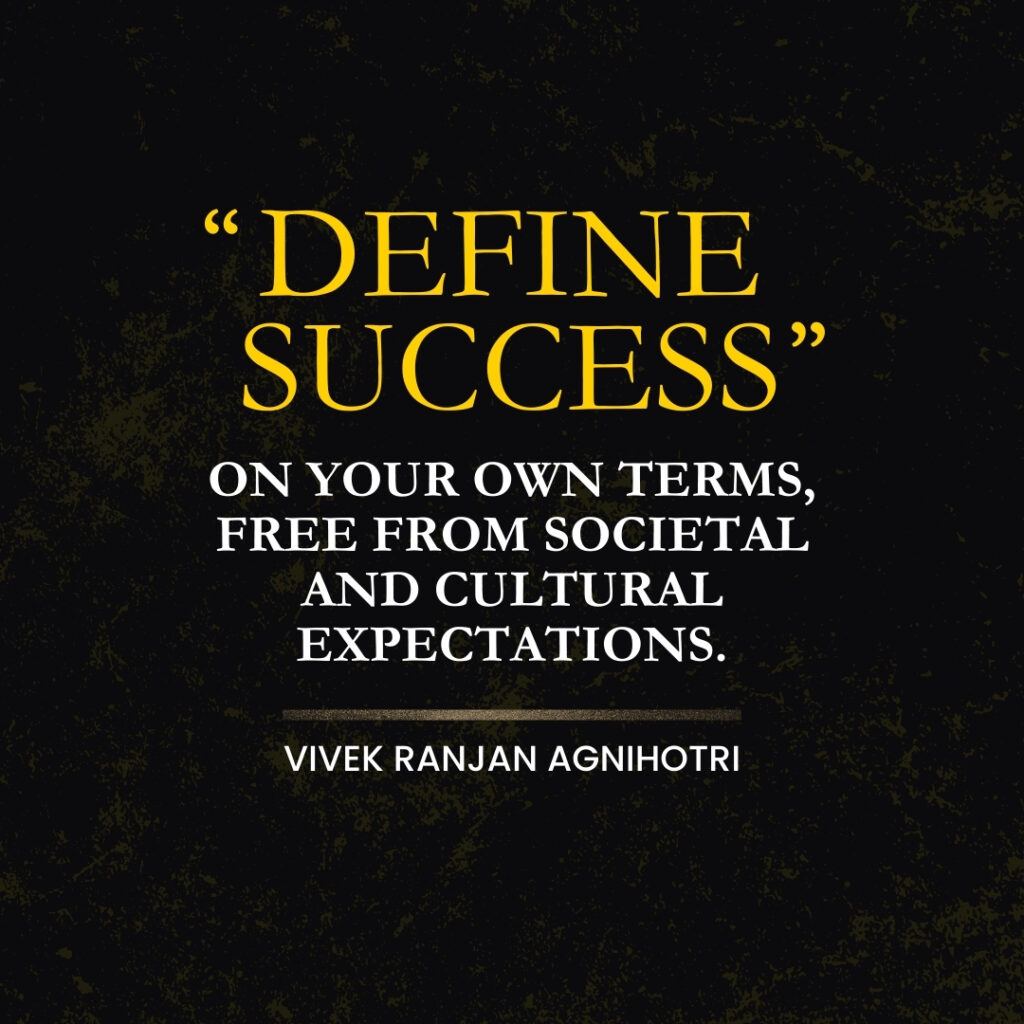
8. Balance of Work and Life
Success should not come at the cost of one’s health, relationships, or personal fulfillment.
Achieving a balance between professional ambitions and personal well-being is another crucial aspect of success. Vivek Ranjan Agnihotri warns against overworking and neglecting personal life, promoting a healthy balance for professional growth while nurturing personal happiness.

Conclusion
The Book of Life offers a profound exploration of success, challenging conventional definitions and encouraging a holistic and personal approach. Success, as Vivek Agnihotri defines it, is about inner fulfillment, ethical living, and meaningful relationships. It invites us to reflect on our own definitions and pursue a path that leads to genuine happiness and satisfaction. By embracing the principles outlined in the book, readers can redefine success in a way that aligns with their values and leads to a more meaningful life.






